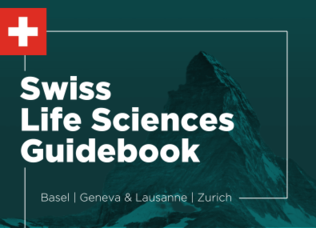Second interview questions to ask candidates



The second interview can sometimes be the final stage in the interview process. They are often conducted by line managers and decision makers, so it is important that the right questions are asked.
The first interview should have clarified enough soft skills and experience to warrant shortlisting the candidate to progress to this stage. Second interviews usually involve more targeted and specific questions, relating to hard skills and how the candidate would fit not only in the vacancy, but also the dynamics of the team and company they are joining.
Questions will vary based on the role, the candidate and whoever is conducting the interview, but there is a general pattern that follows second interviews. Questions will usually fall into one of the following categories:
Anything from the earlier stages that needs clarifying
At this stage, the candidate has impressed enough with a CV, a cover letter, an initial telephone call and/or a face-to-face interview. There may still be some aspects from these stages that need confirmation, particularly if the second interviewer wasn’t present at the first one.
Some questions you may wish to consider include:
“In your last interview/on your CV, you mentioned XXXX, could you tell me a bit more about that?”
If you are addressing something from the past, providing context will help the candidate understand what it is you need clarification on and not repeat what you already know.
“Do you want to revisit anything from the first interview?”
Framing the question like this gives the candidate the opportunity to clarify themselves or highlight something they didn’t get to in the first interview. This is a useful icebreaker and can relieve some tension for the candidate to revisit something they’ve been worried about from an earlier stage of the process.
“Do you have any questions about the business or the role since your first interview?”
In a multi-stage interview process, the candidate may be involved in other interview processes or have received new information since the last conversation. This is a good way to break the ice and ensure they are still confident your company is a good match for them.
Questions specific to the role
With the general soft skills being the focal point of the first interview, a second interview focuses more on the specific benefits a candidate will bring and how they will add value to the business through the roles. This is particularly important in the niche skills and understanding required within different aspects of the life sciences industry.
“What are the first three things you’d look to change/implement if you started tomorrow?”
This is a useful way to see the value the candidate will bring to the business and their understanding of the role. how much the candidate understands about your business. They may not know too much about the inner workings of your business, but you’ll be able to see their thought process, priorities and might even get some useful feedback on your existing processes.”
“What should our company be doing?” (alternatively, what are our competitors doing that we aren’t?)
This highlights what the candidate knows about your market, the competitors and what industry trends are transforming the market to keep businesses competitive. Are they aware of trends like AI, recently released research or new regulations that would impact the role they are interviewing for? Also, you might get some good insight to evolve your business too.
N.B. – Often, candidates can feel tripped up by questions about change. While it may be a sign of leadership for them to confidently highlight issues, some may need encouraging if they are afraid of bad mouthing the processes of their potential new employer.
“What type of impact did you make at your last role?”
This is a useful way to see if they are results, people or process driven. Keep an eye out for if they respond with stats and numbers for their results, talk about new efficient processes or if they focus on managing teams and working with their colleagues. This will give you insight into what they value and how they measure their success.
“We are currently implementing XYZ, do you have experience with this/how would you tackle this?”
Using active scenarios gives a useful insight in how the candidate would take on the challenges your business is currently facing. Listening to their thought process will enable you to evaluate the candidates based on actual situations they’ll be up against and may also give you some good insight into the issues impacting your teams too.
“What do you know about our product and services? Have you worked on something similar before?”
Similar to the above question; how much research has the candidate done into your business? More importantly, how much experience do they have in the area of the industry that your company will be focusing on? These live examples are good ways to simulate conversations you will be having with them as a future employee.
“Tell me about a time a project’s deadline changed and you had to adapt”
Real world examples are useful ways to see how a potential future employee deals with certain scenarios. Pick a stress point that may occur in their role to evaluate their response to unexpected or stressful situations.
Personality and culture compatibility
The second interview is usually conducted by someone who will be working in close relation to the new employee so this is a great opportunity to get a feel for how they would be to work with. Successful hires rely on the candidate being compatible with the team and company culture they will be joining.
“What is your preferred management style?”
As well as highlighting their personal management style and experience, this question will help you understand how compatible the candidate may be with your current leadership structures and review culture.
“How would you describe yourself in one sentence? How would your friends describe you?”
It’s a staple interview question. Asking how others would describe them may lead to some interesting insights about their personality.
“What do you get up to outside of work?”
A staple interview question – a great icebreaker and allows you to hear more about the person behind the professional. If you have similar interests, this can relieve a lot of tension in the interview process.
“In your previous role, did you work more as a team or on an individual basis?”
Asking if they prefer to work as a team or individually will likely result in the answer “I work well in both”. Asking about their previous experiences will give a better indication of their preferred way of working and how they talk about their previous teams.
Expectations and logistics
Depending on how many stages are left in the interview process, the second interview will give you a good gauge on your final hiring decision. These questions are key to ensure that the ideal candidate is not only able to accept a potential offer, but also what expectations they may have from working with you as an employer.
“How long is your notice period?”
A very simple question that confirms the earliest start date and if the candidate has any obligations or leave that may impact this.
“Just want to confirm; do you know what salary this role was advertised with?”
Asking about salaries in interview is a divisive topic. Some interviewers will ask upfront, others may prefer to briefly cover the topic and discuss in detail at offer stage. It is important to understand the candidate’s expectations as this may impact your offer.
“Have you looked into the logistics of relocating/commuting to * LOCATION*?”
Roles that require relocation will likely have been discussed in the very early stages. This question highlights both how seriously the candidate has researched the required move and encourages conversation around any concerns.
“I know you’ve mentioned you’re ok with the amount of travel involved in this role, did you have any questions about this?”
Questions about travel will likely have already taken place if it is core to the role. This question confirms the candidate’s ability to travel and invites any concerns or negotiations they may have that may influence your decision.
Depending on how many stages are left in the interview process, the second interview will give you a good gauge on your final hiring decision. These questions are key to ensure that the ideal candidate is not only able to accept a potential offer, but also what expectations they may have from working with you as an employer.
“How long is your notice period?”
A very simple question that confirms the earliest start date and if the candidate has any obligations or leave that may impact this.
“Just want to confirm; do you know what salary this role was advertised with?”
Asking about salaries in interview is a divisive topic. Some interviewers will ask upfront, others may prefer to briefly cover the topic and discuss in detail at offer stage. It is important to understand the candidate’s expectations as this may impact your offer.
“Have you looked into the logistics of relocating/commuting to * LOCATION*?”
Roles that require relocation will likely have been discussed in the very early stages. This question highlights both how seriously the candidate has researched the required move and encourages conversation around any concerns.
“I know you’ve mentioned you’re ok with the amount of travel involved in this role, did you have any questions about this?”
Questions about travel will likely have already taken place if it is core to the role. This question confirms the candidate’s ability to travel and invites any concerns or negotiations they may have that may influence your decision.
Questions that encourage their input
It is very easy forget that it is not just the interviewer assessing the candidate, the candidate is also determining if they want to join your company too. Ensuring they have a chance to ask questions and showing awareness of their decision will give them a good opportunity to ensure they are excited to potentially join your team and give you the chance to alleviate any concerns they may have.
“What question should I have asked you, but haven’t?”
May seem like a trick question, but this is a great way to encourage the candidate to highlight a key point they want you to know that didn’t come up already. Give the candidate a chance to sell themselves.
“Is there anything from your current/previous companies that you think we could benefit introducing here?”
Industry insight is key to keeping ahead of the game. Not only will this highlight more evidence of how the candidate operated in their previous employment, it may also give you some ideas that can improve your business operations.
“Is there anything about the role or company that concerns/worries you?”
A simple question, but key to ensuring both you and the candidate leave the interview with the information you need to make an informed decision. This gives you the opportunity to clarify any determining factors or highlight any points that may need to be negotiated before a potential offer.
“Do you know much about the culture here?”
This is a leading question to set you up into your sales pitch for the company and the role. It is important that you sell the opportunity, benefits and culture.
N.B. Remember, great candidates will be in high demand with other job offers, so it is important to highlight the benefits of your company, particularly in the competitive recruitment field of life sciences.
Looking to hire life sciences professionals?
For more information on our recruitment solutions for interim and permanent vacancies, you can contact our dedicated client services team here, or upload your job description directly.




+(395+x+285+px).png)

+(395+x+285+px)+(1).png)
.png)



.png)



